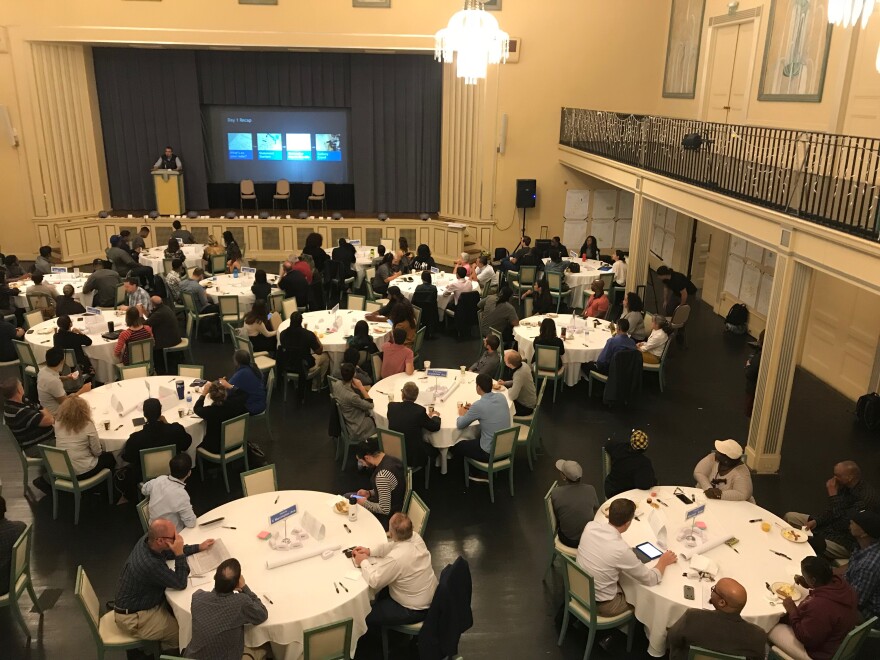One of the biggest costs of having a job is getting there. Figuring out how to decrease the time and money spent commuting was the focus of Mobiliti, a workshop held in Pittsburgh last week. Residents, employers, and technology companies worked together to hammer out possible solutions.
Investments in transportation help individual employees, but they’re also good for a company’s balance sheet, said Adam Paulisick, chief product officer of Maya Design, which organized the workshop.
“If you can’t get people there you can’t do the work no matter how successful you want to be, you hit a ceiling,” he said.
Say an employee frequently arrives late to work because she has to transfer to a second bus. That second bus may sometimes pass her by because it’s too full. Or another employee simply can’t haul forty pounds of tools to a worksite. The cost to replace otherwise exemplary employees is far greater than investing in transportation, said Paulisick. This is especially true in a tight labor market: the Pittsburgh region is home to burgeoning construction, health and technology industries.
Providing transportation benefits also frees up time for an employee, sometimes as much as two to three hours per day. That’s time a person could be catching up on sleep or exercising, making him or her a better employee.
“We can’t at the same time ask them to get up at 3 a.m. in the morning to make a stop at childcare and then a stop at school and then arrive by 8 a.m.,” said Paulisick. “Only to work their shift and then do the exact same commute on off-peak hours home not arriving until 8 [p.m.] and then doing it all over again day after day.”
At more than a dozen tables, groups of people tried to imagine solutions for specific challenges, such as less frequent service during off-peak hours, particularly people who work the night shift. Even if someone catches the last bus toward home, they may still be miles away, said Alton Harrell, guest services manager for the Omni William Penn Hotel downtown. He and his table imagined an off-peak, neighborhood-specific shuttle system with safe places to wait.
“We can test having a driver and a local bus or you know a community thing,” he said.
“So when I get off the bus, somebody’s waiting to take me there?” clarified Ahyanna Morton of the Housing Authority of the City of Pittsburgh.
As the day wore on, their table continued to finalize their ideal service.
Several of the pilot ideas developed by the workshop will be selected for testing and deployed in early 2019.




